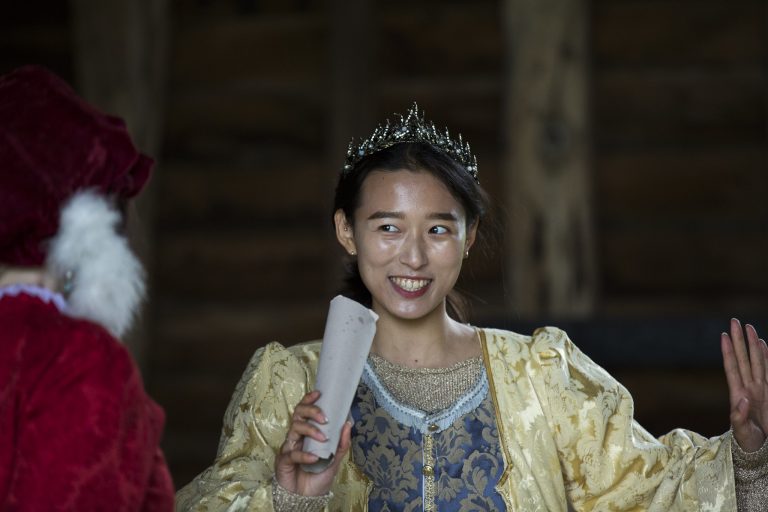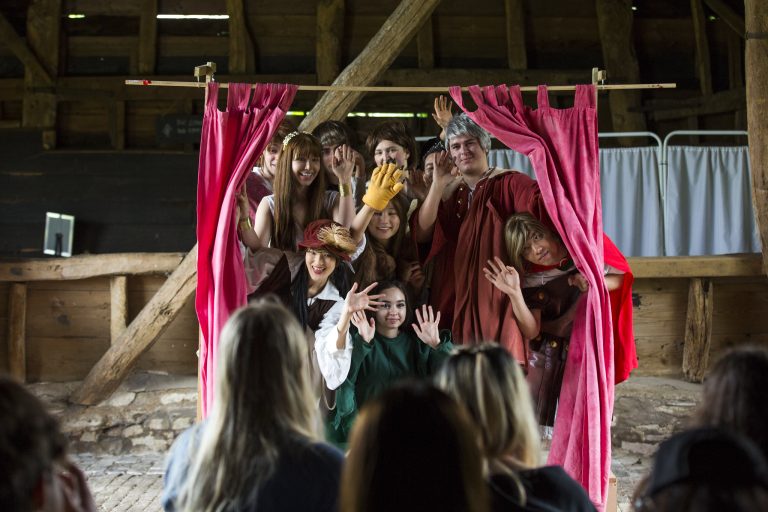Cambridge School of Visual & Performing Arts provides drama courses that can lead to a career as an actor. With the UK being the second most desired location for international students, CSVPA welcomes students from across the world to share the knowledge of top-quality dramatic educators.
William Shakespeare wrote that ‘all the world’s a stage, and all the men and women are merely players’. While there’s an argument to be made that we are all actors in our own way, only a small portion of people get to act as a profession.
Cambridge School of Visual & Performing Arts provides drama courses that can lead to a career as an actor. With the UK being the second most desired location for international students, CSVPA welcomes students from across the world to share the knowledge of top-quality educators.
But, how do you become an actor? This article will look at what you need to become a professional actor with hopes of inspiring the reader to follow your ambition

ATTITUDE
The competition for actors starts way before auditioning for jobs. Acting is such a sought-after profession that you might be required to audition just to get on a drama course. As a result, it’s important that you go into acting with your eyes open.
You will definitely experience some rejection as an actor. In fact, you’ll probably experience more rejection than success. This is where your attitude comes into play. Even the most successful people in the world failed before they made it. Some actors have even said that you cannot succeed until you’re comfortable with rejection. When you don’t take rejection personally, you can look at your performance objectively and use feedback to better yourself. By contrast, those who are defensive or dismissive of rejection do not learn from their mistakes.
For international students, a positive attitude towards rejection and feedback is hugely important as you may face obstacles that other students do not, namely, the language. That being said, the advantages of being bilingual and experiencing other cultures could be beneficial for an actor’s repertoire.

EDUCATION
The top drama courses will require auditions for enrollment. Preparing for drama school can be daunting, especially if you’re planning to study in a foreign country. CSVPA’s drama foundation course aims to prepare participants for drama school through a year of intensive and varied training.
Rachel Ellis, head of drama at CSVPA, states that its ‘teachers have attended drama school and university, worked as actors and directors and formed their own companies’.
This is one of the main advantages to studying in the UK. Teaching at the top level is highly competitive, meaning that students are learning from the very best. To learn more about CSVPA’s performing arts opportunities feel free to browse our courses or get in touch.

PRACTICE
As with anything, practice makes perfect. If you have aspirations of becoming an actor then you will need to spend many hours honing your skills. Being naturally gifted isn’t always enough. Remember, hard work beats talent when talent doesn’t work hard.
This is where having a community of peers is very useful. During drama courses, you will be encouraged to have no inhibitions and be comfortable with other students, listening to their feedback and giving your own. Tutors will also be a great source of guidance, highlighting areas of your acting in need of practice.
In conclusion, CSVPA can offer international students a way into performing arts with the tuition of professional and personable teachers. With good attitude, education and work ethic, students can progress to drama school and university with greatly increased chances of becoming a professional actor.







